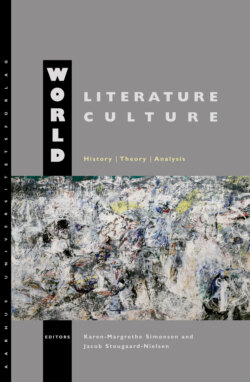Читать книгу World Literature, World Culture - Группа авторов - Страница 16
На сайте Литреса книга снята с продажи.
LEFTOVER IDEOLOGY: MELTZL’S ANTI-COSMOPOLITANISM
ОглавлениеBeing Hungarian myself, I first felt flattered to find all these references to Meltzl in the works of leading contemporary theorists of comparative literature. Not that Meltzl was Hungarian: along with the co-editor of the journal and his patron at the University of Cluj/Klausenberg/Kolozsvár (today, the city is called Cluj-Napoca), Sámuel Brassai, Meltzl belonged to the Saxon minority of Transylvania – a region that, after being the victim and the site of unabashed political and military competition for centuries, became, in the nineteenth century, the battlefield of linguistic and historical arguments over whether Romanians or Hungarians had inhabited it first.
Ethnically, Meltzl was neither Hungarian nor Romanian but German. But he became particularly famous in Hungarian circles in Transylvania when, upon receiving the chair of Germanistik, he gave his inaugural lecture in Hungarian against what he considered to be Gervinus’ nationalistic misinterpretation of Goethe’s concept of Weltliteratur. He was also a lifelong fan of the Hungarian poet Sándor Petőfi, whose work he translated and advocated enthusiastically.2 This was the same Petőfi who, pace Meltzl – who took him, alongside Goethe, to be a representative of Universalpoesie – was in fact the poet of the national revolution in Hungary in 1848 and was probably killed by Cossacks in a battle in 1849. Petőfi, just like Meltzl’s friend Brassai, fought in the war against the Austrian and Russian Empires for Hungarian independence. One may not be too far off the mark in thinking of Meltzl’s inclusion of Hungarian in his decaglottist list as the inclusion of Petőfi in Weltliteratur, and accordingly, his omission of Russian as an omission of the language of those who killed Petőfi.3
To be sure, Meltzl was critical of nationalism, both in its old unapologetic version and in its newly emerging forms, which, he argues, are the same old nationalism in the guise of cosmopolitanism: “[f]or today every nation demands its own ‘world literature’ without quite knowing what is meant by it. By now, every nation considers itself, for one good reason or another, superior to all other nations” (Meltzl 60). What he suggests instead really borders on the impossible: since comparative literature should both translate and keep intact the national literature of a people, the ultimate but unattainable ideal is Weltliteratur, which for Meltzl is identical with comparative literature, and means the “loving cultivation of the purely national of all nations.”
But it would be anachronistic to ascribe Meltzl’s anti-cosmopolitanism to any broader concern about cosmopolitanism’s potential collateral damage. It is, rather, a position that has very transparent political motives: a last position accessible to someone who wants to advocate the literature of a country that had lost its war for national independence just two decades earlier, a country that around this time, in the aftermath of the 1867 compromise between Austria and Hungary, was becoming more powerful than it had been in more than 300 years.
At the same time, this new political power was emerging as part of an empire in which the price of Austrian and Hungarian dominance was being paid by the other ethnicities living in the Monarchy’s realm – the Czech, Slovakian, Croatian, Serbian and Romanian, none of which is included in Meltzl’s list. In order to become part of an empire, and indeed a dominant part of it, Hungary had to forget about its dreams of national autonomy; this is the particular context that shapes Meltzl’s position on literature, nationalism and cosmopolitanism. Both the nationalist and the cosmopolitan arguments are already taken by other countries to justify their national literatures. Meltzl’s perspective is simply the last one left for an advocate of a smaller literature under the new conditions of the European literary scene.
